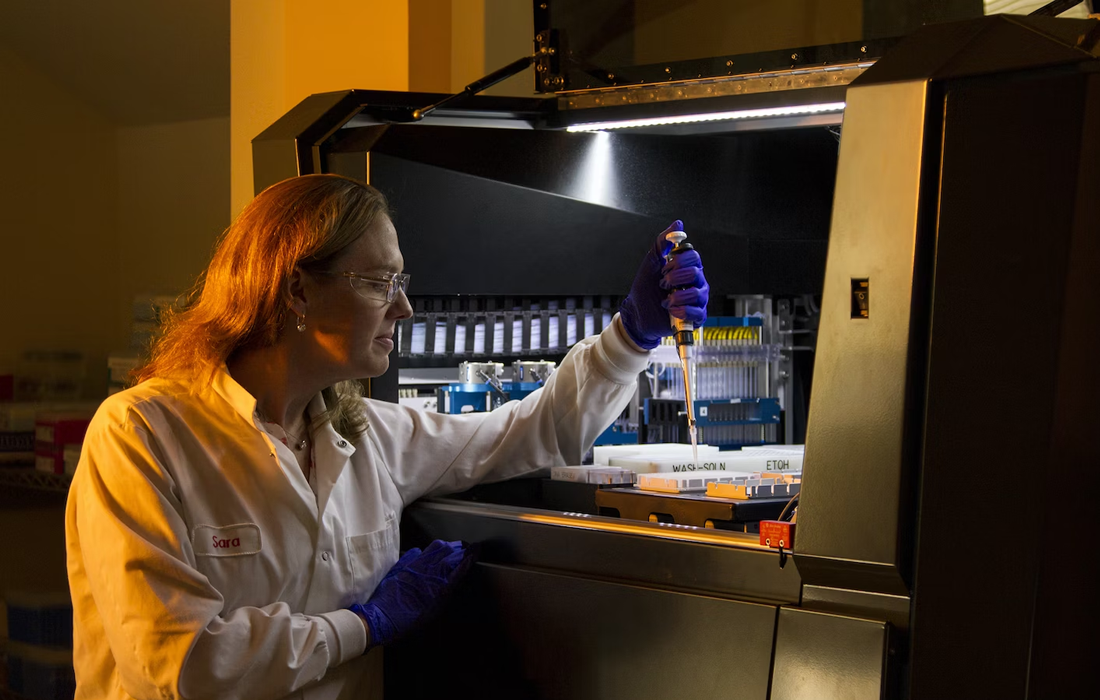One promising approach to treating Type 1 diabetes is implanting pancreatic islet cells that can produce insulin when needed, which can free patients from giving themselves frequent insulin injections. However, one major obstacle to this approach is that once the cells are implanted, they eventually run out of oxygen and stop producing insulin. To overcome […]
Author Archives: Karely Vega, MD
Children whose mothers had a higher exposure to certain phthalates during pregnancy tend to show smaller total gray matter in their brains at age 10. This is one of the main conclusions of a study led by the NYU Grossman School of Medicine and the Barcelona Institute for Global Health (ISGlobal), a centre supported by […]
Researchers from Ann & Robert H. Lurie Children’s Hospital of Chicago and colleagues reported for the first time that a genetic biomarker may be able to help predict the severity of food allergy reactions. Currently there is no reliable or readily available clinical biomarker that accurately distinguishes patients with food allergies who are at risk […]
Among available immunotherapies, the use of “CAR-T” cells is proving extremely effective against certain blood cancers, but only in half of patients. A main reason for this is the premature dysfunction of these immune cells, which have been artificially modified in vitro. A team from the Universities of Geneva (UNIGE), Lausanne (UNIL), the Geneva University […]
A team of biomedical engineers from Brown University has developed a new hydrogel-based delivery system that balances the acidic environment in a tumor and greatly enhances the cancer-fighting activity of the chemotherapeutic drug it encapsulates in lab experiments. The hydrogel system, which is injectable, acts as a buffer to the drug doxorubicin and directly delivers […]
Craniosynostosis, the premature fusion of the top of the skull in infants, is caused by an abnormal excess of a previously unknown type of bone-forming stem cell, according to a preclinical study led by researchers at Weill Cornell Medicine. Craniosynostosis arises from one of several possible gene mutations, and occurs in about one in 2,500 […]
Yale researchers have shown that placental examination resulted in the accurate pathologic determination of more than 90% of previously unexplained pregnancy losses, a discovery that they say may inform pregnancy care going forward. The findings were reported Sept. 19 in the journal Reproductive Sciences. There are approximately 5 million pregnancies per year in the United […]
In a sign that exposure to certain endocrine-disrupting chemicals may be playing a role in cancers of the breast, ovary, skin and uterus, researchers have found that people who developed those cancers have significantly higher levels of these chemicals in their bodies. While it does not prove that exposure to chemicals like PFAS (per- and […]
Attention-deficit/hyperactivity disorder (ADHD) is among the most common pediatric neurodevelopmental disorders. In 2019, nearly 10% of United States (U.S.) children had a diagnosis of ADHD. Approximately 3.3 million children, or roughly 5 out of every 100 children in the U.S., are currently prescribed medication for ADHD. In a new study, published today in Pediatrics, researchers […]
Autoimmune diseases are complex illnesses, the causes of which are diverse and have not yet been fully explained. A research team at MedUni Vienna has now discovered an immunoregulatory protein that could be linked to the development of autoimmune diseases such as rheumatoid arthritis. The study results were recently published in the Journal of Experimental […]










